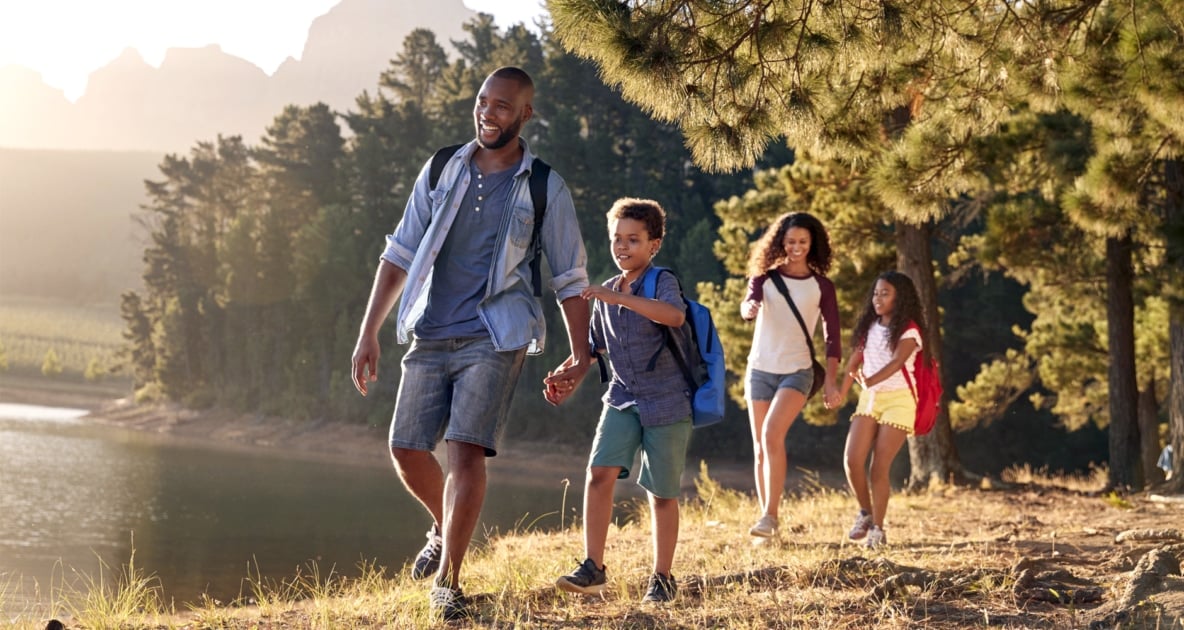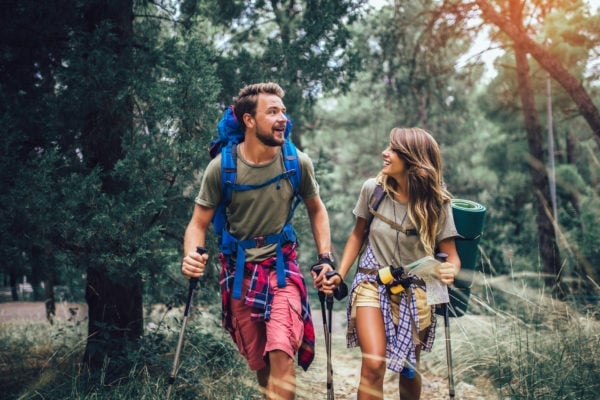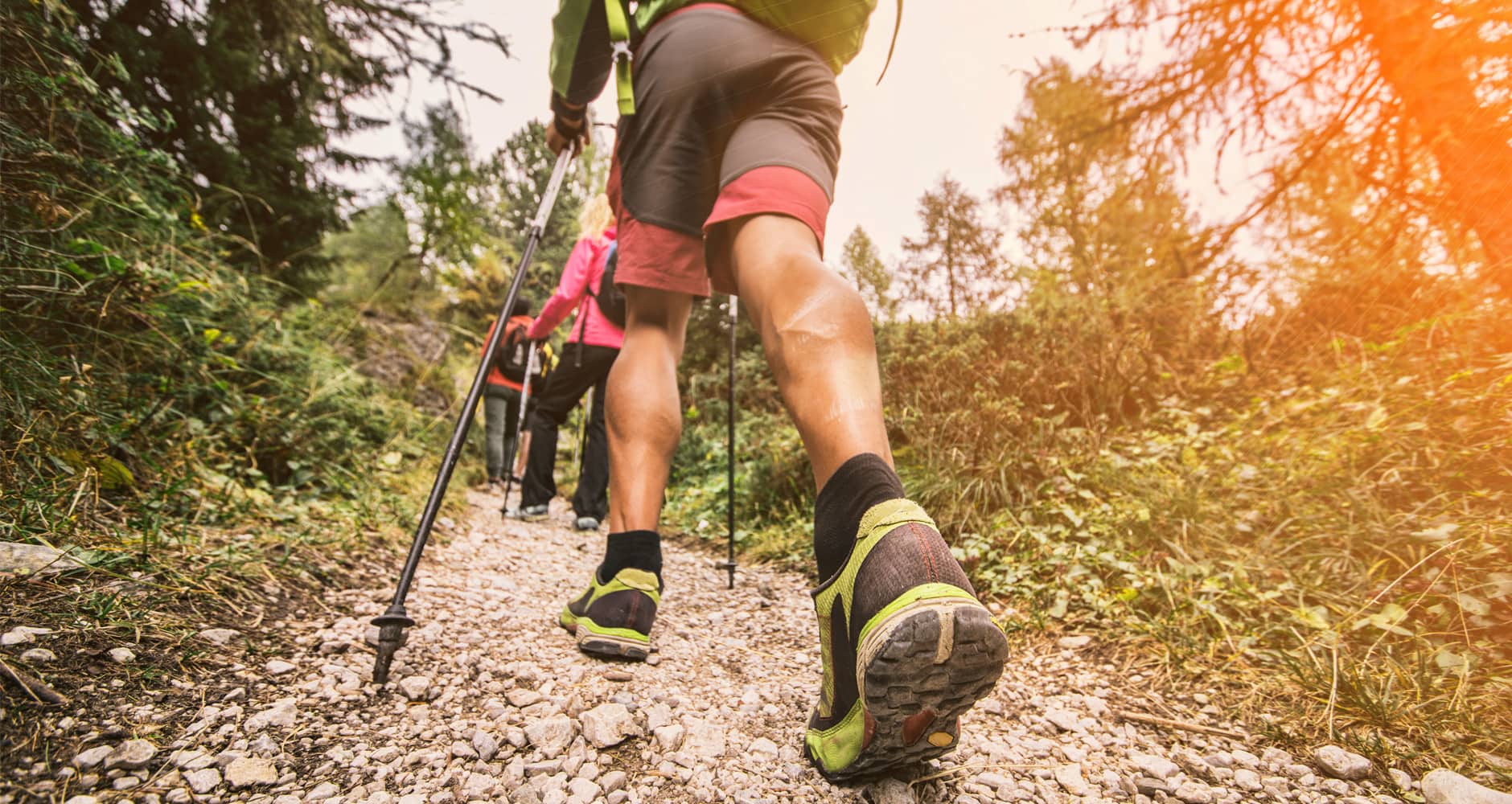Must-Read Tips for Camping and Hiking Safely in the Wild
If you enjoy being outdoors all summer long, be sure to take the proper precautions when heading to where the wild things live.

Many people enjoy hiking and camping in the wide open spaces or beneath a verdant forest canopy — these activities fill us with a sense of awe and wonder as we take the time to explore and appreciate our natural surroundings. But it’s important to be safe. The more we understand how bears and other wildlife in the area behave, the safer and more enjoyable our outdoor adventures should be.
Bear Safety
There are three species of bears living in North America: black bears, Alaska brown bears (Ursus arctos middendorffi, aka grizzly or Kodiak bears), and polar bears (Ursus maritimus) in the Arctic region. The American black bear (Ursus americanus) is the most common species and is found in 40 of the 50 US states and throughout Canada, with the exception of Prince Edward Island. Contrary to its name, this species of bear varies in coloration from black, brown, and white. The North American brown bear, or grizzly (Ursus arctos) is found in the states of Idaho, Montana, Washington, and Wyoming. It is also found in the Yukon and Northwest Territories, British Columbia, and Alberta.
- Select a campsite before dark. Survey the area, check for animal tracks, strewn garbage and insect nests, before setting up camp. Chose a clearing, on high ground, away from tall grasses.
- When camping in bear country, store food in a cooler in your vehicle instead of in a tent. If you camp often, bear-proof coolers and garbage cans are available. Popular Mechanics put several to the test, using a 450-pound grizzly, and found them to be highly efficient when used with a lock or bolt.
- Do not keep any food in your tent. Bears are attracted to the smell of mint, peppermint, etc. so store your toothpaste in the cooler too.
- Spread a band of garden lime on the ground around your tent and picnic area, to deter snakes and bears. Sprinkle lime on the garbage can lid too.
- Pets should be brought inside the tent or camper at night for their protection and yours.
- When collecting fallen wood for campfires, avoid possible spider or snake bites by kicking the wood over to expose and examine the undersides before touching it. Wear gloves when picking up wood.
- Never leave children unattended.
- Don’t venture out of the campsite on foot or bike, after dark.
Safe Hiking/Mountain Biking Safety Tips
- Always check the weather forecast before hiking or biking long distances.
- Don’t hike after dark. Bears travel and feed at night to avoid people. Snakes, such as the copperhead are especially active at night during hot summer weather.
- Never hike alone. It’s always best to hike with a buddy or in a group, on established trails.
- When hiking with children, position them between two adults. Put a loud, survival whistle around each child’s neck and teach him or her to use it if lost or separated from the group.
- Let the wild animals know you’re coming. Carry a stick and hit the brush or trees to make noise, talk, sing, or play music, etc., when walking or mountain biking on winding trails and when returning to your campsite, to give wildlife an opportunity to retreat before you arrive. This could save your life, especially when grizzly bear sows, and cubs are nearby.
- Keep pets on a leash when hiking to avoid a conflict with wildlife.
- Deter insect bites by tucking the edge of your pant legs into socks or boots. For further protection strap a tick and flea collar around your pant ankles when hiking.
- Don’t eat wild mushrooms, berries or other plants when hiking in the wilderness unless you are/are with an experienced guide to wild edibles. If you happen upon a patch of wild berries, keep an eye out for snakes or bear.
- Never discard food scraps or wrappers on the trail.

- Don’t carry or consume any mint flavored candy or gum when hiking, to avoid attracting bear.
- Do not feed wild animals. Birdseed also attracts bear, leave it at home.
- If you find a baby animal in the wild, do not touch it. Bear, or wildcat cubs can have sharp claws or teeth at a young age and injure you. Picking up a wild animal may provoke an attack from a protective mother or predatory animal hunting nearby. If you spot bear cubs, or other predatory animals, leave the area. If the animal is injured, call the state’s Fish and Game department if you can.
- If you come across an animal carcass, leave the area. Predatory animals may be nearby.
- Don’t touch or pick up snakes. Baby venomous snakes contain poisonous venom too.
Check out our favorite camping hacks, here!
Stay safe and enjoy the great outdoors as it has lots to offer!

Deborah Tukua
Deborah Tukua is a natural living, healthy lifestyle writer and author of 7 non-fiction books, including Pearls of Garden Wisdom: Time-Saving Tips and Techniques from a Country Home, Pearls of Country Wisdom: Hints from a Small Town on Keeping Garden and Home, and Naturally Sweet Blender Treats. Tukua has been a writer for the Farmers' Almanac since 2004.








some food you can throw into the woods like nut shells or bannana pells, just not something that is not from the natrual inverment like candy bars or bread.
The number one thing you can do is tell a trusted person where you are going, when you expect to return “home” and who you are with.
Take a picture or group picture the day you leave and everyday and email/text it to the person or persons you told the above information to. A picture of the bottom of your shoes/boots can also help SAR determine your tracks from others if you become lost.
Wear colors that can be easily seen in the woods or carry a bright colored bandana.
Keep a Personal Survival Kit (PSK) with you and know how to use every item in it.
If you do become lost, “Hug-A-Tree”.
Just a few of the basic safety issues that need brought to everyone’s attention.
Great ideas, thank you for your comments!
Thank you for the information. It was very informative.